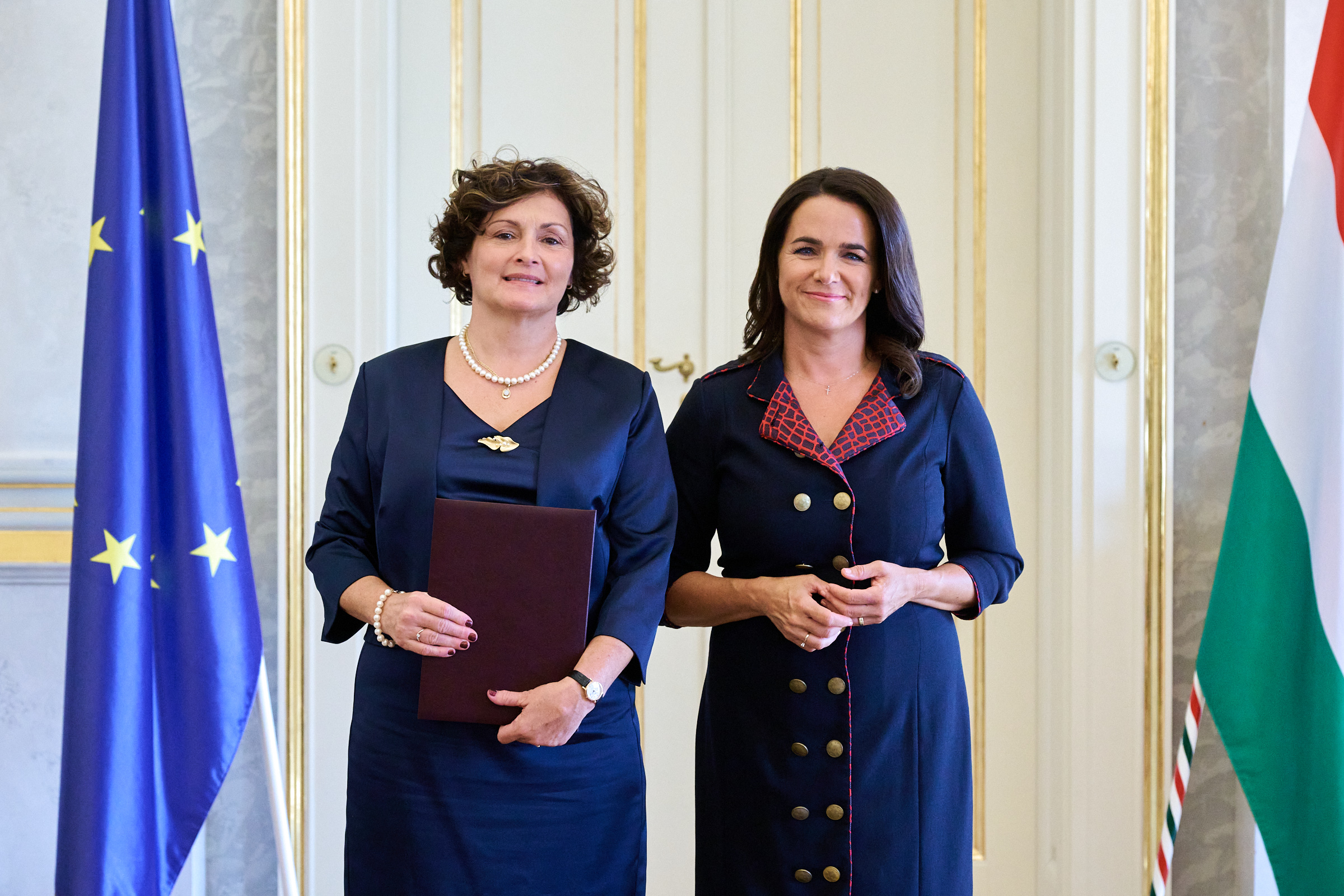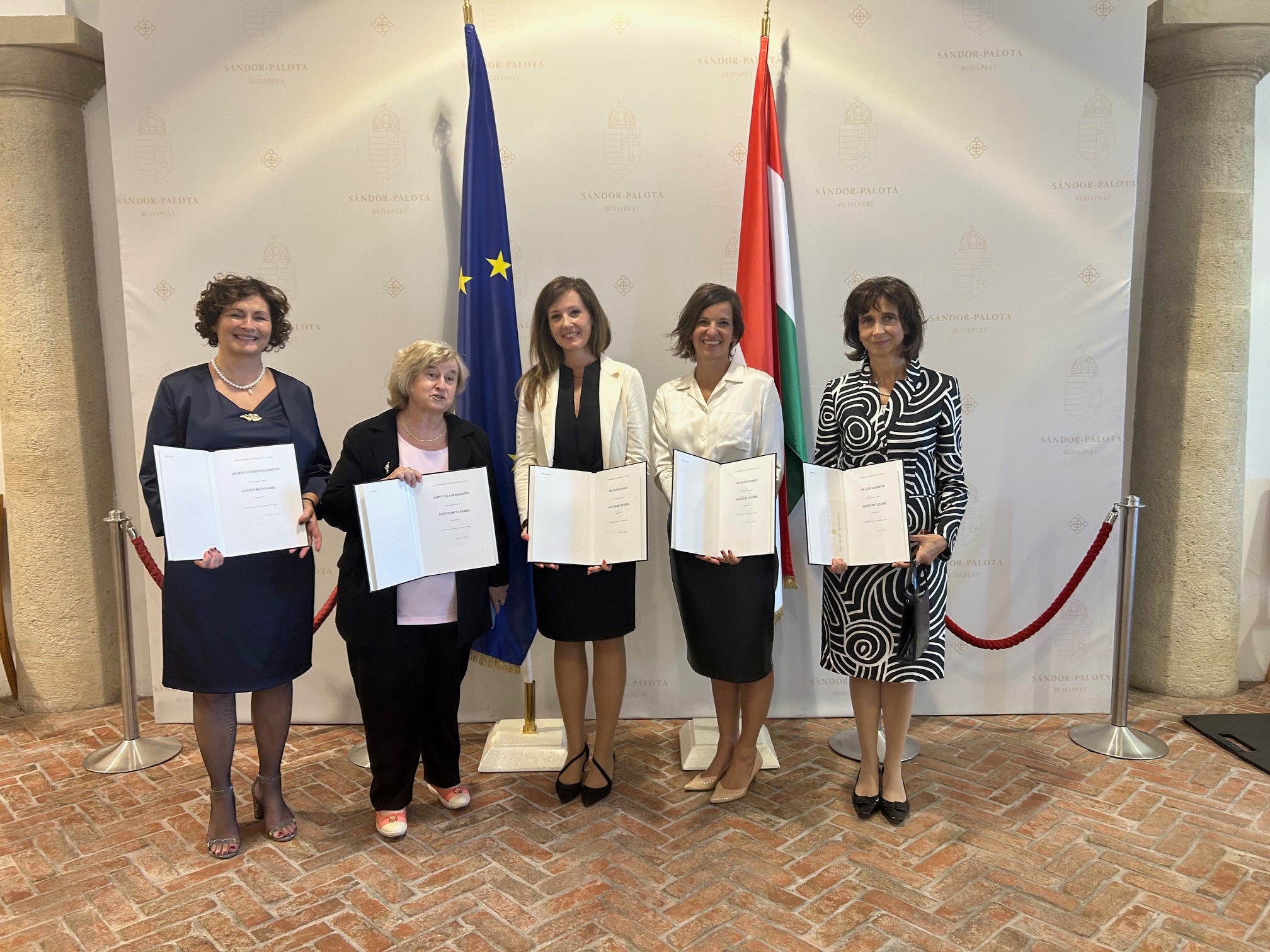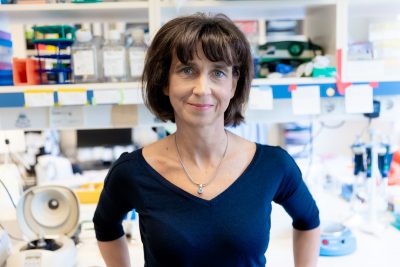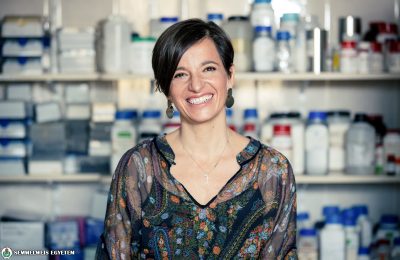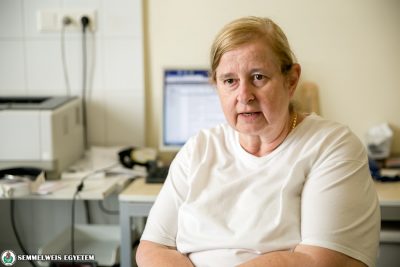Was reaching university level teaching a definite goal for you, or was it more of a natural progression in your work?
I didn’t want to be a doctor initially, but then I walked into the Department of Conservation Dentistry at Mikszáth Square on an open day, and decided that this was where I wanted to work later. It was a good choice, as it’s a fast evolving field where you’re constantly coming across amazing new things. Basically, I’ve been teaching since I graduated from the Faculty of Dentistry in 1992 and started working as a prosthetist at the Department of Prosthodontics, where the primary task was to teach propedeutics. Dr. Pál Fejérdy, Dean of the faculty, entrusted me with the task of establishing an independent Department of Propedeutics, as this field had already existed before, but not as a separate department, but as part of a clinic. This is how I became acting head of department as an adjunct professor in 2011, and after my habilitation in 2012, together with my appointment as a university associate professor, I became a permanent department head.
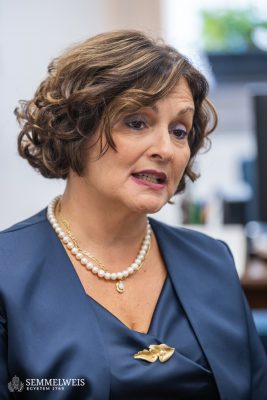 I also wanted to become a professor, but it was the beauty of the work itself and the fact that I love it which kept me going. I taught prosthodontics in the clinic for twenty years and have been involved in teaching propedeutics since the department was founded. I have also been involved in the development of several subjects’ topics. I have done my research in parallel with teaching, but I also love patient care.
I also wanted to become a professor, but it was the beauty of the work itself and the fact that I love it which kept me going. I taught prosthodontics in the clinic for twenty years and have been involved in teaching propedeutics since the department was founded. I have also been involved in the development of several subjects’ topics. I have done my research in parallel with teaching, but I also love patient care.
As a matter of fact, the skills needed for research, teaching and leadership are mutually reinforcing. Take for example that I currently support five PhD students, and this requires continuous joint brainstorming, organizing and networking during the planning and conduct of their research, also with other clinics and specialties, in order to provide even better options for the care of patients with dry mouth.
Within propedeutics, students can learn the clinical interventions required for dental work, and develop their physical skills and dexterity, so it is a quite practical subject. In comparison, your field of research is related to the clinics. Did you consciously shape it this way?
During my undergraduate studies, within periodontology, the exploration of the causes, consequences and treatment options for diseases and conditions associated with dry mouth and the autoimmune disease Sjogren’s syndrome with an internal medicine background drew my attention due to the complexity of these problems. Later, this area became my PhD topic under the guidance of my mentor, Professor Fejérdy. In Hungary, approximately one third of the population suffers from some degree of dry mouth, which can sometimes be a symptom of disease such as diabetes, but it is also typical that it develops as a result of medication. A working group to care for these patients started to form around 2013 and, under my leadership, was finally established as a clinical research group in 2020. Its members include nutrition experts, immunologists, internists, ophthalmologists and dermatologists.
Have you had any publications that may have been particularly relevant to be awarded the title of professor, or of which you are particularly proud?
In principle, 10 high quality publications of your own are required for the award of tenure. I would highlight three of them: one in 2008, based on a study of 600 people, which resulted in the first publication of statistical data on the prevalence of dry mouth in the country, and another in 2022, which described the prevalence of Sjogren’s syndrome in the country as a result of a study involving 1000 people. In the third publication, a globally pioneering advance was made in the measurement of small salivary gland secretion.
What feedback have you received since you took over your appointment from the President of the Republic?
I was surprised and honoured to receive so many congratulations, I felt that my appointment as professor was welcomed both from within the university and from my circle of acquaintances. When I started my work, the proportion of women researchers in the Faculty of Dentistry was quite low, although the internationally renowned achievements of Professor Jolán Bánóczy was already an inspiration to us. Her influence is still felt today, and partly thanks to this, the proportion of female students at the faculty is steadily rising, exceeding 50 percent now. Some of our classes are even 90 percent female-majority.
How can you balance work and private life with so many tasks and roles?
The situation of women researchers and academics is not easy, as there are many challenges in balancing work and family responsibilities. If a woman gets a call from school that her child is ill, she has to rush and pick them up as she has no one to delegate. An eight-hour workday therefore requires very sensible organization: every minute has to be allocated according to the activities you want to finish that day. However, I decided early on that I would not bring work home to my family as much as possible. It takes a lot of discipline and determination to keep up with this, but it can be done.
This year, a total of five women have been appointed as new professors at Semmelweis University, the highest number in recent years. Several of the new recipients are also pioneers in their own departments and institutes, the first female professors. In our series in Hungarian, you can read interviews with all five of them; the interview with Dr. Hajnalka Vágó is available in English here, the interview with Dr. Ágnes Szirmai is available in English here, and the reflections of Dr. Andrea Fekete are available in English here.
Melinda Katalin Kiss
Translation: Viktória Kiss
Photo: Bálint Barta – Semmelweis University, Gyula Bartos – Sándor Palace
